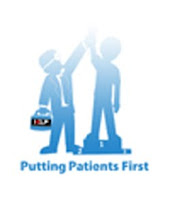What are kidney stones?
Kidney stones are made of salts and minerals in the urine that stick together to form small "pebbles." They can be as small as grains of sand or as large as golf balls. They may stay in your kidneys or travel out of your body through the urinary tract . The urinary tract is the system that makes urine and carries it out of your body. It is made up of the kidneys, the tubes that connect the kidneys to the bladder (the ureters), the bladder, and the tube that leads from the bladder out of the body (the urethra).
When a stone travels through a ureter , it usually causes pain and other symptoms.
What causes kidney stones?
Kidney stones form when a change occurs in the normal balance of water, salts, minerals, and other things found in urine. The most common cause of kidney stones is not drinking enough water. Try to drink enough water, enough so that your urine is light yellow or clear like water (about 8 to 10 glasses a day). Some people are more likely to get kidney stones because of a medical condition, such as gout.
Kidney stones may also be an inherited disease. If other people in your family have had kidney stones, you may have them too.
What are the symptoms?
Kidney stones often cause no pain while they are in the kidneys. But they can cause sudden, severe pain as they travel from the kidneys to the bladder.
Call a doctor right away if you think you have kidney stones. Watch for severe pain in your side, belly, or groin or for urine that looks pink or red. You may also feel sick to your stomach (nausea) and may vomit.
How are kidney stones diagnosed?
You may first find out that you have kidney stones when you see your doctor or go to an emergency room with pain in your belly or side. Your doctor will ask you questions about your pain and lifestyle. He or she will examine you and may do imaging tests such as a CT scan or an ultrasound to look at your kidneys and urinary tract.
You may need more tests if you have more than one stone or have a family history of stones. To find out the cause of your kidney stones, your doctor may order a blood test and ask you to collect your urine for 24 hours. This can help your doctor find out if you are likely to have more stones in the future.
Kidney stones may not cause any pain. If this is the case, you may learn you have them when your doctor finds them during a test for another disease.
How are they treated?
For most stones, your doctor will suggest that you take care of yourself at home. You may need to take pain medicine. You'll need to drink enough water and other fluids so you don't get dehydrated. Your doctor may give you a medicine to help the stone pass.
If a stone is too large to pass on its own, or if it gets stuck in the urinary tract, you may need more treatment.
The most common treatment is extracorporeal shock wave lithotripsy (ESWL). ESWL uses shock waves to break a kidney stone into small pieces. The bits can pass out of your body in your urine. Other times, a doctor will need to remove the stone or place a small flexible plastic tube (called a stent) in the ureter to keep it open while stones pass.
How can you prevent kidney stones?
After you have had kidney stones, you are more likely to have them again. You can help prevent them by drinking plenty of water, enough so that your urine is light yellow or clear like water, about 8 to 10 glasses of water a day. You may have to eat less of certain foods. Your doctor may also give you medicine that helps prevent stones from forming.
Healthwise® Knowledgebase
Follow us on:




No comments:
Post a Comment